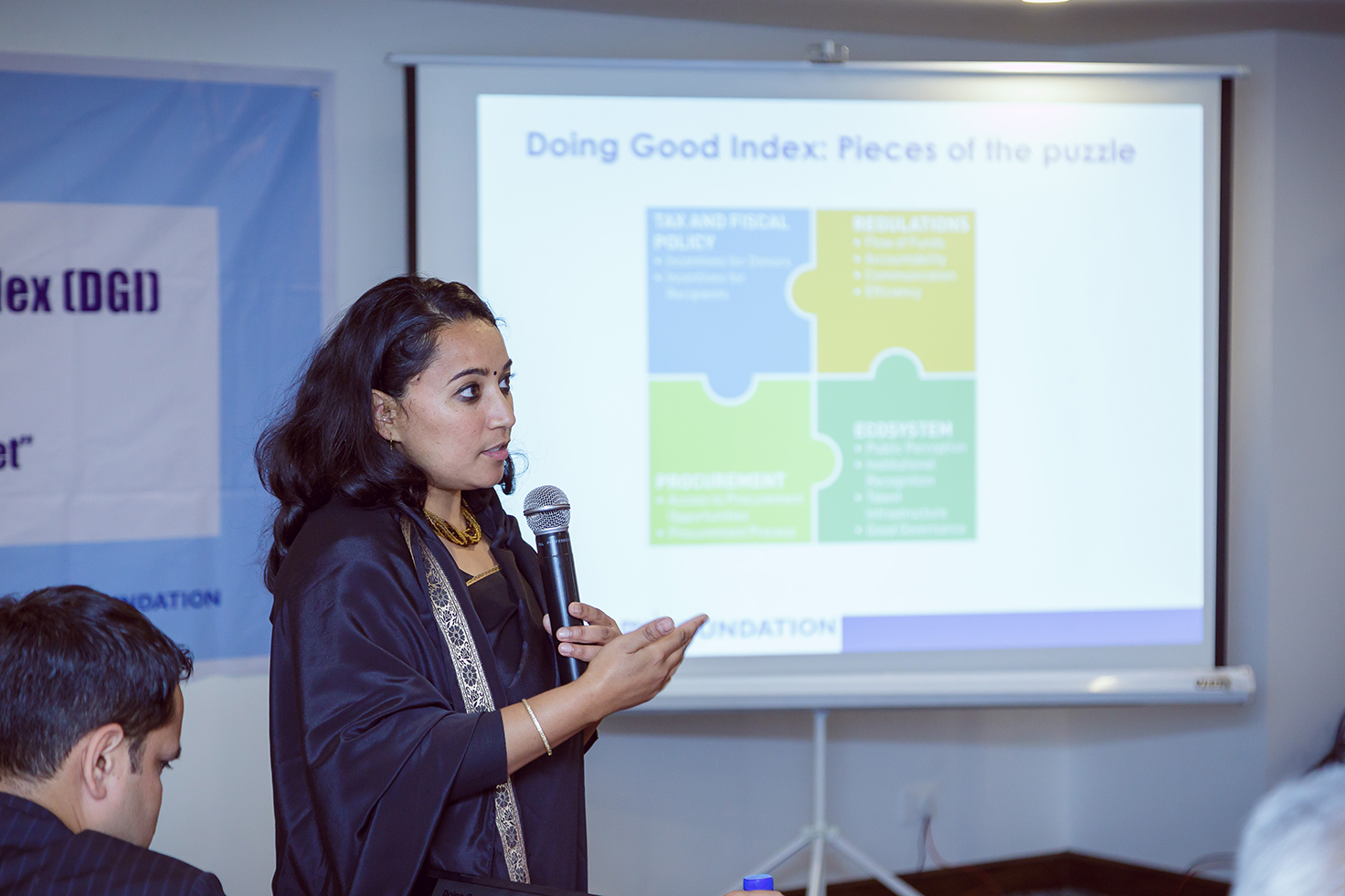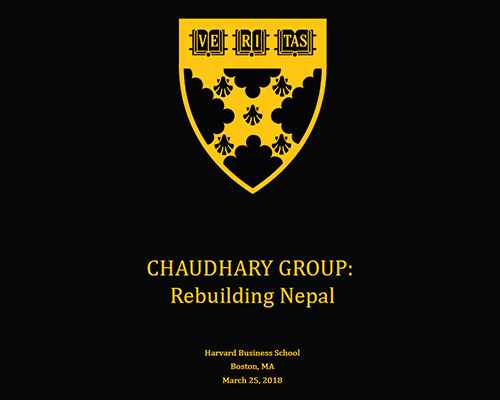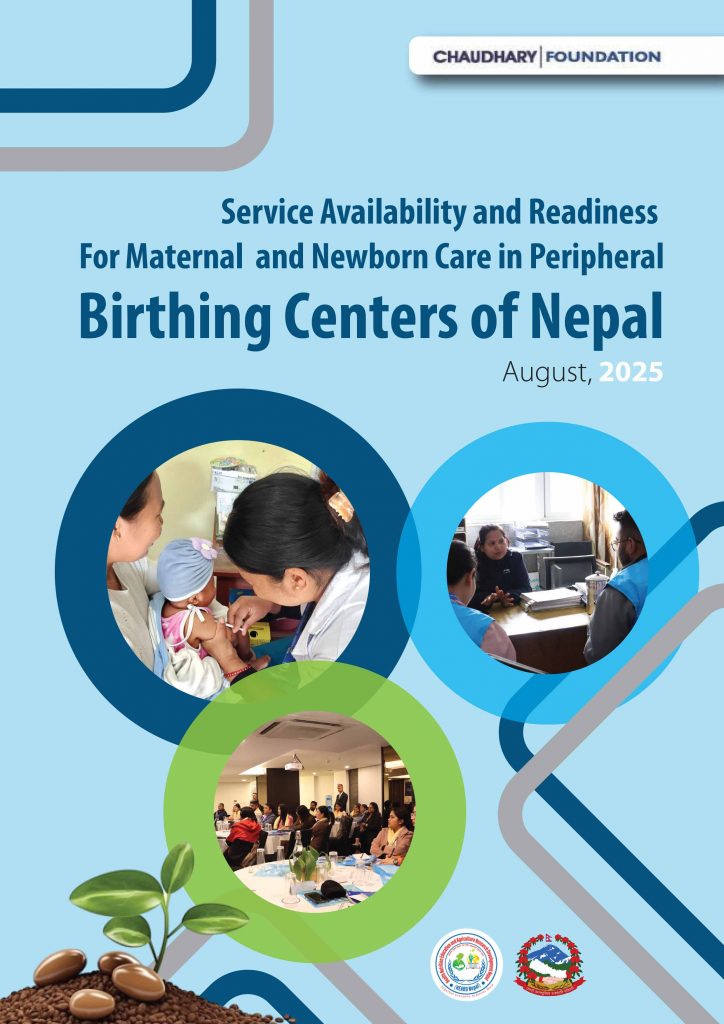Research & Publications
Doing Good Index
(DGI) 2020
Doing Good Index (DGI) 2020, a groundbreaking study geared towards helping the social sector in Asia grow and thrive. Chaudhary Foundation has partnered with the Centre for Asian Philanthropy and Society (CAPS) to run the survey in Nepal. The Centre for Asian Philanthropy and Society was established in 2013 after identifying the lack of systematic, rigorous and evidence-based research into philanthropic practices and policies in Asia. Today’s work in philanthropy, impact investing, social delivery, and corporate social responsibility (CSR) must meet the requirements of complex social issues in the 21st century. Doing Good focuses on 18 economies throughout Asia and recognize that each has a unique set of strengths, challenges, and needs. It does both in depth and comparative study with the collaboration with various partners across Asia. The study is grounded in evidence-based research and meticulously collected data.

The research findings inform both policy and practice. Equipped with results-based understanding, philanthropists, investors, and policy makers can make informed decisions. Doing Good Index examines the enabling environment for philanthropy and private social investment across 18 Asian economies. Composed of four areas–tax and fiscal policy, regulatory regimes, socio-cultural ecosystem, and government procurement–the Index reveals how Asian economies are catalyzing philanthropic giving.
Doing Good Index is a first-of-its-kind study based around a set of indicators that taken together show the regulatory and institutional infrastructure enabling or impeding philanthropic giving. DGI examines fiscal, cultural and social incentives to donate; the regulatory environment that can facilitate or hinder systematic investment; factors that affect the establishment and operations of organizations that deliver services or products to address a societal need; and their ability to access funds. The survey will be based on the below mentioned 4 indices.
- Regulations
- Tax and Fiscal Policy
- Ecosystem
- Procurement

Harvard Business School Case study on
Chaudhary Foundation
“Chaudhary Group: Rebuilding Nepal” is the case study done by Christopher J. Malloy, Lauren H. Cohen and Inakshi Sobti and is published in Harvard Business School publishing site. This case study is published on 25th March 2018.

The massive earthquake with a magnitude of 7.9 Richter scale in 2015 rattled Nepal to its very core, which killed nearly 9,000 and destroyed over 750,000 homes across the country. The study is about how a billion-dollar conglomerate Mr. Binod Chaudhary, chairman of Chaudhary Group in Nepal, decides to play a pivotal role in rebuilding the country with its social initiative, -Chaudhary foundation. The case study focuses on how a billionaire can be dedicated onto social work, how he along with a team continually worked with stakeholders to make an impact in people’s lives and how he found many ways to internalize social issues. The Group’s philanthropic arm (Chaudhary Foundation) started immediate response with relief camps and relief distribution and with building transitional shelters. The team responded with 1000+ food packs along with 8 relief camps and built 2500+ transitional shelters that benefitted more than 12000 people.

